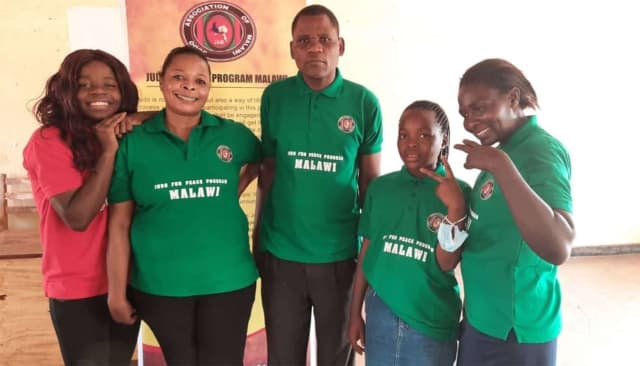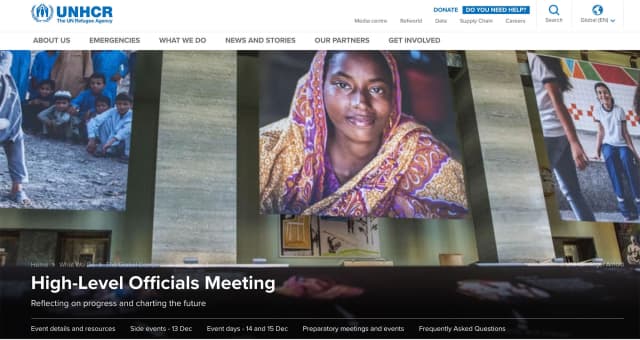Following this first GRF the first high level officials’ meeting is taking place on 14th and 15th December 2021. In light of recent developments related to the COVID-19 pandemic and resulting travel restrictions, the meeting will be held in a virtual format.
The high level officials’ meeting is part of the process of building a long-term framework for engagement of states and other actors in refugee situations, as set out in the Global Compact on Refugees. It is a dynamic moment and a milestone in implementing this approach.
Back in December 2019, on the eve of the first Global Refugee Forum, the International Judo Federation was among the 70+ partners who expressed their commitment to improveming sporting opportunities to refugees. Active for many years on the field to provide refugees with educational and sporting opportunities, the IJF continues to play an important role and is happy to participate in the high level officials’ meeting.
During the first preliminary discussions that took place on the eve of the official kick-off of the meeting, important points were raised, including the fact that supporting the refugee community is about the wellbeing of human beings but not only that. It is also a long term partnership to create the conditions of a better society. In a time where millions of people across the planet are forced to flee their countries and are often obliged to live in inhuman conditions, the common responsibility of everyone is to contribute to offering new opportunities and better life conditions.
In this sense, the contribution of sport is crucial. First of all, physical activities are contributors to self-reliance, especially within communities where young children are often outside the education system. If they cannot get a good start in life, it is obviously going to affect their future.
Throughout its Judo for Peace and Judo for Refugees programmes, aiming to address the educational issues faced by refugees, the IJF has been proactive in many regions from Kilis, Turkey, to Zambia, Malawi, Jordan and South Africa. New initiatives are implemented on a regular basis, like more recently in Zimbabwe, based on the actual situation faced by the local refugee and host populations.
For a qualitative education, sport and especially judo are not just physical activities. They foster the participants' engagement. Through developing physical and mental capacities, they reinforced social skills, community trust, cohesion and harmony.
Watch the live stream of the event on Tuesday 14: CLICK HERE
Trust is a critical point to be addressed since many, if not all the refugees, have gone through traumas and lost their capacity to trust others. What is valid for adults is even more accurate for the young ones. This is the reason why the IJF is putting a lot of effort into making sure that our dojos are safe spaces where refugees can find support and friendship and can begin to rebuild their futures.
It is commonly accepted that to learn well school, any child must be healthy. That is why sports are so important and that is also the reason why the IJF is very keen on developing judo for children programmes. This goes beyond just the situation of refugees themselves, but can widely benefit all involved with the Judo for Children programmes as well.
Access to sport can therefore be considered a major human right as part of a global, holistic, educational approach.
Wherever the IJF is active, with the support of its member federations and its partners, being part of the solution of a massive and difficult situation is a necessity and a responsibility. Judo, particularly through its values, is a universal language that can be spoken by everyone and that can help to change the narrative about refugees, in order to offer them new opportunities.
More information on THE GLOBAL COMPACT ON REFUGEES
and the High-Level Officials Meeting



